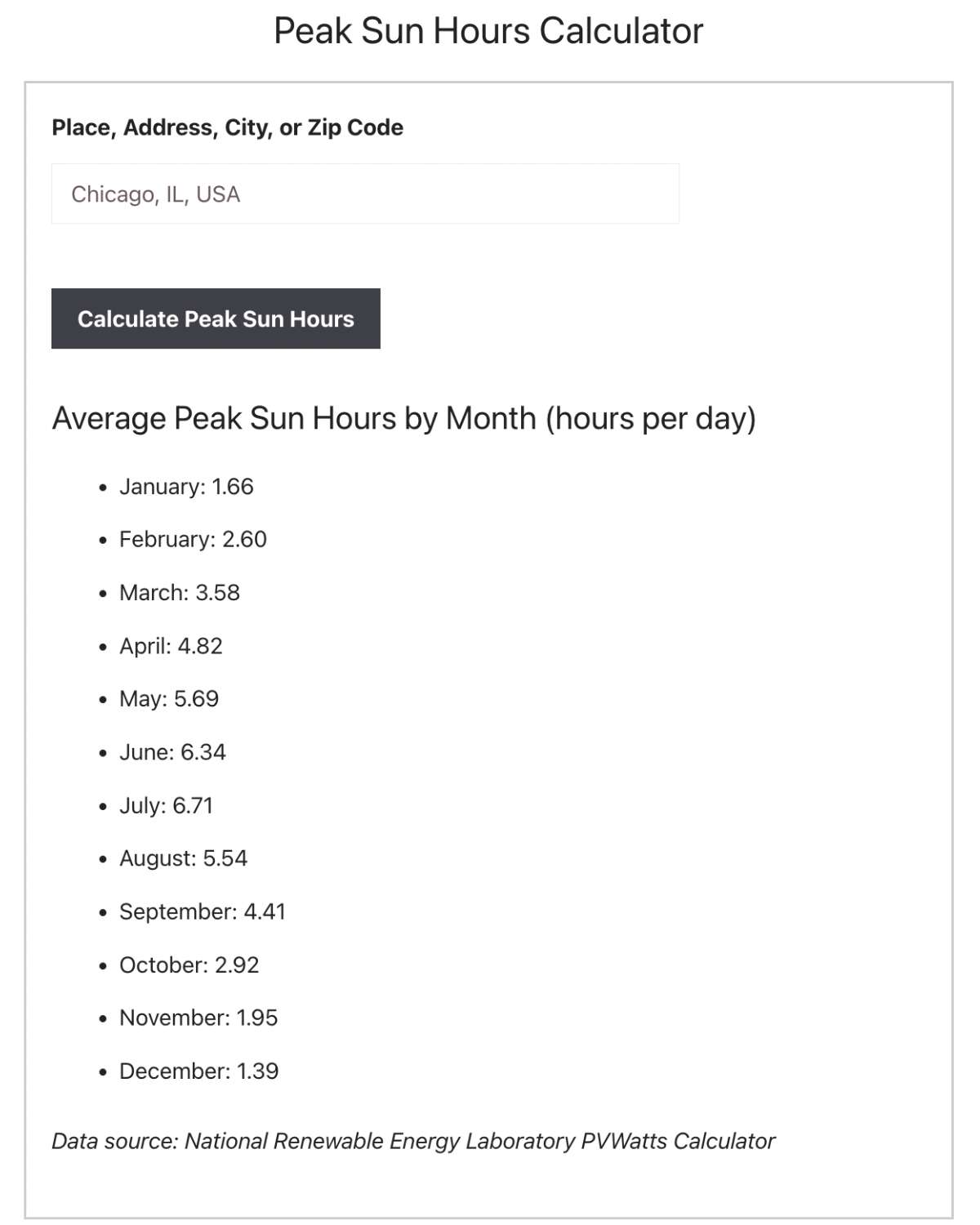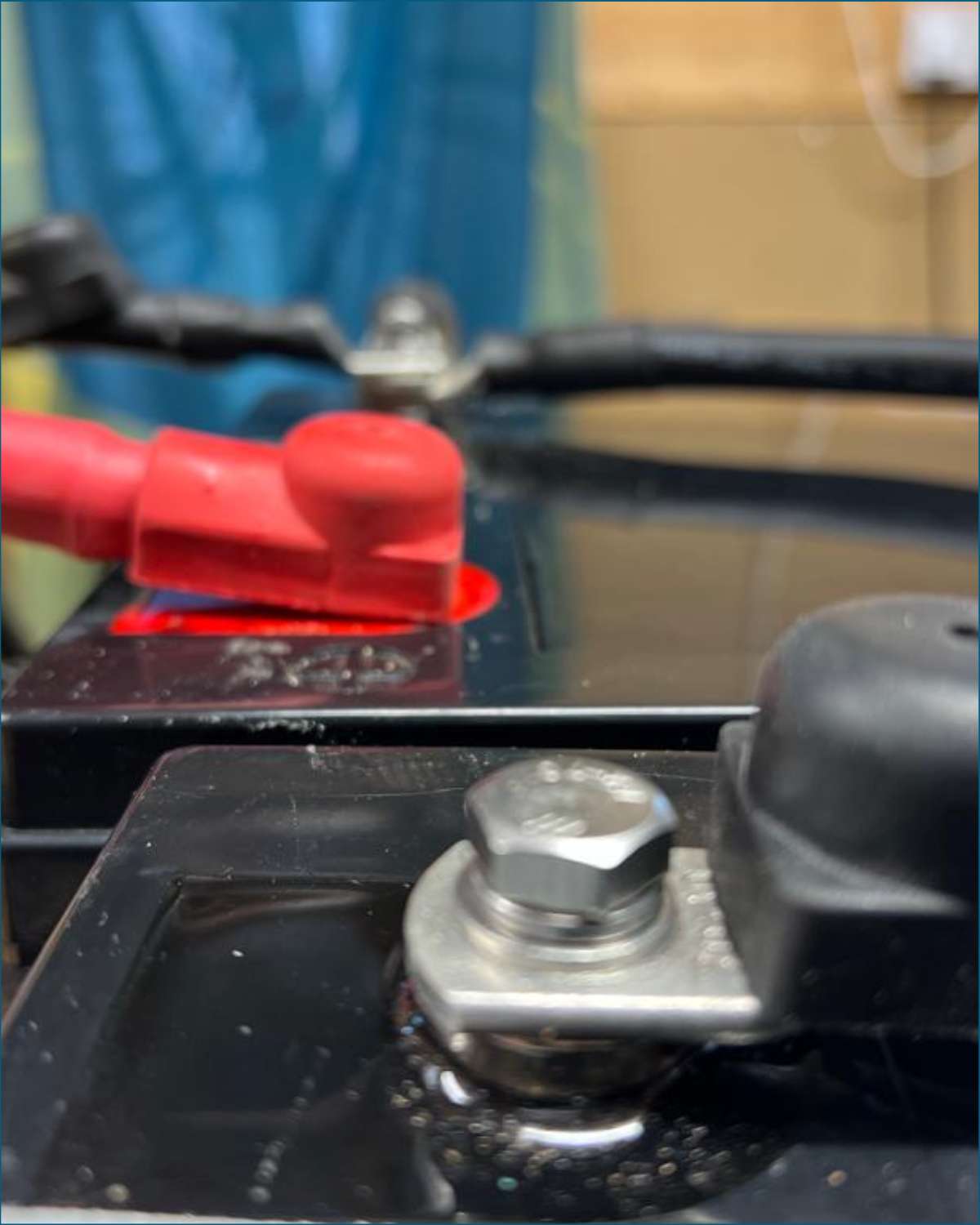Discover the benefits of flexible solar panels for RV adventurers in our ultimate guide! Learn step-by-step installation tips, discover the best flexible panels available, and get practical advice to enhance your off-grid experience.
Solar panels are the perfect solution for RVers looking for a reliable, sustainable energy source to charge the camper’s battery bank!
With more and more RVers turning to solar power, flexible solar panels are becoming increasingly popular.
Rigid RV solar panels are by far the most efficient type, but flexible panels bring something to the mix that rigid panels can’t: flexibility!
Flexible solar panels are an ideal addition to any new or existing RV solar panel system.
In this comprehensive guide, we’ll discuss:
- the advantages and disadvantages of flexible solar panels over traditional panels,
- key factors to consider when selecting the best panels for your RV,
- provide detailed product reviews of the top 5 best flexible solar panels for RV available on the market, and
- show you how to mount and install them into your RV’s solar setup.
By the end of this guide, you’ll have all the information you need to choose the best flexible solar panel for your RV adventures! So let’s get started!
When you click on links to various merchants on this site and make a purchase, this can result in this site earning a commission. As Amazon Associates, we earn from qualifying purchases. For more info, please check our disclosure page.
At A Glance: Best Flexible Solar Panels For RV Campers
 |
1. Renogy 12 Volt Flexible Monocrystalline Solar Panels
|
CHECK PRICE ► |
 |
2. Renogy 350 Watt Solar Flexible Kit: Best Flexible Solar Panel Kit For RVs
|
CHECK PRICE ► |
 |
3. BougeRV Yuma 200W The Most Flexible Solar Panel
|
CHECK PRICE ► |
 |
4. DOKIO Semi-Flexible Solar Panel 100W
|
CHECK PRICE ► |
 |
5. VICEMOB 100 Watt 12 Volt Flexible Solar Panel
|
CHECK PRICE ► |
What Are Flexible Solar Panels?

Flexible solar panels are photovoltaic (PV) panels made from thin-film technology.
They are lightweight, bendable, and can be installed on curved surfaces.
That makes them ideal for use in applications such as boats, RVs, and other vehicles where weight and space are limited.
Solar panels work by converting sunlight into electricity through the use of PV cells. These cells contain materials that generate electrons when exposed to sunlight.
The electrons flow through the cell to create an electrical current which is then used to power devices or stored in batteries for later use.
Polycrystalline solar panels (the blue ones), while more affordable than monocrystalline panels (the black ones), are known to be slightly less efficient in converting sunlight into electricity.
The difference in efficiency is due to the structure of the silicon crystals within the cells.
Monocrystalline panels are made from a single crystal structure, allowing a more direct pathway for electrons to flow. In contrast, polycrystalline panels contain multiple crystal structures, which can create some resistance in the electron flow.
We recommend avoiding polycrystalline flexible solar panels to maximize the energy you can produce.
Advantages & Disadvantages Of Flexible Solar Panels For RV Campers
We installed a 400-watt flexible solar panel system on our RV a few years ago, but our experience could have been better.
The primary reason for this was the lower efficiency of flexible solar panels compared to rigid ones.
As full-time RV dwellers who primarily live off-grid, we depend heavily on our solar panels for reliable power.
Therefore, we must have the most efficient system possible.
That said, flexible solar panels are uniquely positioned in RV solar solutions.
In certain situations, they can be more advantageous than conventional solar panels.
The key is to carefully consider your specific needs and circumstances before deciding on the right type of solar panel for your RV.
Here are some of the advantages and disadvantages of flexible solar panels for RV campers:
Benefits & Advantages Of Flexible Solar Panels For RVs
Flexible
Flexible solar panels hold a distinct advantage over rigid ones due to their ability to conform to curved surfaces.
This flexibility is particularly beneficial for RVs, which often have uniquely shaped roofs and limited installation space.
Unlike rigid panels that require a flat surface for proper mounting, flexible solar panels can quickly adapt to the contours of an RV roof, ensuring efficient use of available space and seamless integration with the vehicle’s design.
For instance, imagine an RV with a rounded roof or multiple curves and angles – Skoolies and Airstreams are great examples.
Installing rigid conventional solar panels is limited to the narrow area in the center of the roof.
In contrast, a flexible solar panel can easily adapt to these irregular shapes.
They allow you to make the most of the curved roof space near the edges, providing a reliable source of solar energy without compromising the aesthetics or aerodynamics of the RV.
It’s important to note that flexible solar panels do have limitations in terms of their bendability. The best flexible solar panels for RVs have greater flexibility. Renogy’s panels can flex over 240°.
Lightweight
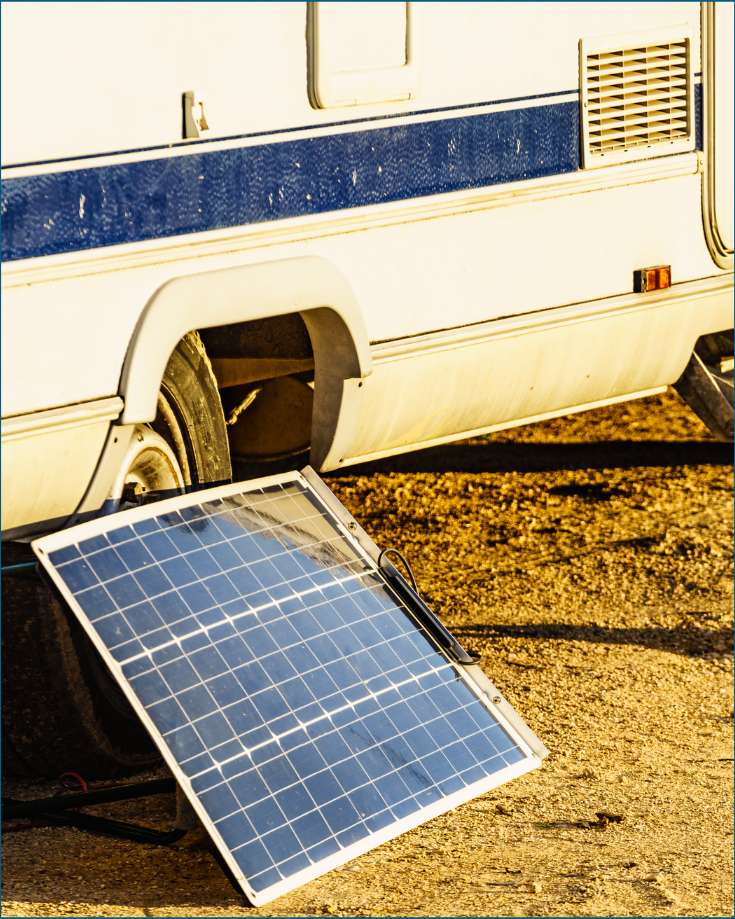
Flexible solar panels offer a significant advantage over rigid ones in terms of their lightweight nature, which helps prevent overloading a vehicle’s load-carrying capacity.
On average, flexible solar panels are up to 70% lighter than a traditional rigid panel, making them an ideal choice for RVs where managing overall weight is crucial.
This weight reduction helps your RV stay within its weight limits but also helps maintain fuel efficiency and handling characteristics.
This lightweight feature is particularly beneficial for RV owners as it allows them to install solar power systems without undue stress on the vehicle’s structure or suspension.
For example, a typical 100w rigid solar panel may weigh around 14 pounds, while a comparable flexible panel weighs just 4 pounds.
An RV owner can effectively add a solar power system by opting for flexible solar panels while keeping the added weight minimal.
Low-Profile
Flexible solar panels offer a notable advantage over rigid panels due to their low-profile design, which helps maintain the aesthetics of an RV.
These slim and discreet panels blend seamlessly with the vehicle’s roof, ensuring minimal visual impact while providing efficient solar power.
This low-profile feature can also serve as a security benefit, particularly for stealth campers who prefer to keep their solar setup discreet.
By not drawing attention to the presence of solar panels, flexible solar panels help maintain a stealthy appearance, reducing the likelihood of theft or unwanted attention from passersby.
Easy Installation
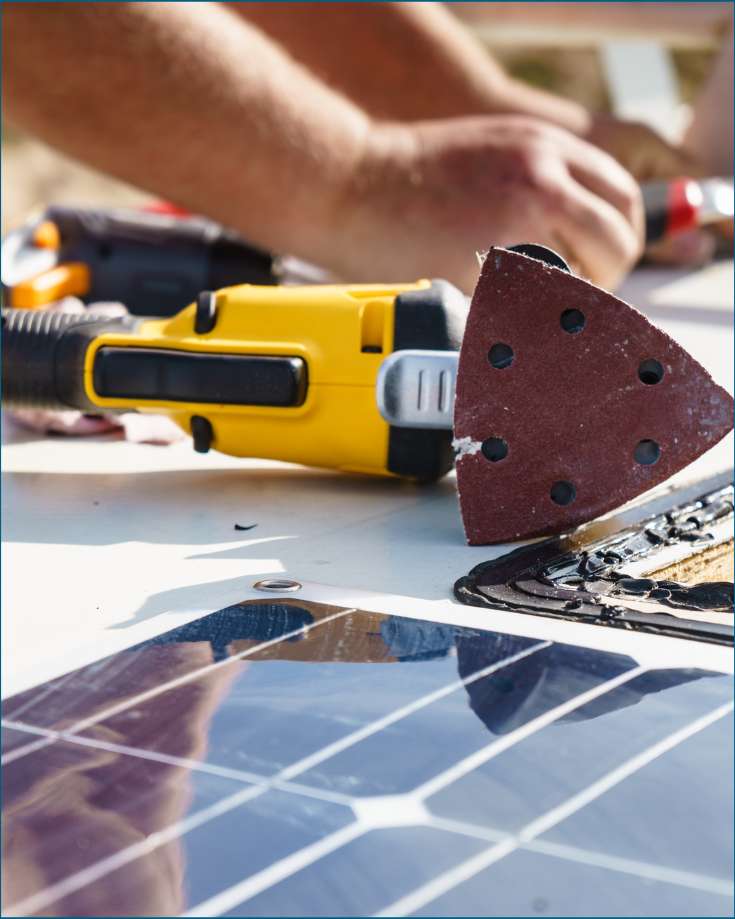
Installing flexible solar panels is simpler and more user-friendly than rigid panels.
Rigid solar panels often require heavy mounting brackets, specialized tools, and considerable time for installation.
In contrast, flexible solar panels typically come with adhesive backing or Velcro straps, making the installation quick and hassle-free even for those with limited DIY experience.
By following step-by-step instructions, you can securely mount your flexible solar panels without complex mounting systems, allowing you to quickly start harnessing solar power for your RV.
No Drilling Required
One of the major concerns for RV owners when installing solar panels is the potential damage caused by drilling holes in the roof for mounting purposes.
With flexible solar panels, this concern is eliminated as they can be attached to the RV roof using adhesive or other non-invasive methods.
This not only preserves the structural integrity of your RV but also prevents potential water leaks and other issues associated with drilling.
Drawbacks & Limitations Of Flexible Solar Panels For RVs
Lower Efficiency
Flexible solar panels are typically less efficient at converting sunlight into electricity than rigid panels.
This is primarily due to the thin-film technology used in their construction, which has a lower conversion rate than the crystalline silicon cells in rigid panels.
As a result, you may need more surface area or additional panels to generate the same amount of power as a traditional rigid panel system.
They Can Get HOT
Due to their design and construction, flexible solar panels get hotter than rigid ones.
One of the primary reasons flexible solar panels get hotter than rigid panels is the absence of air circulation underneath the panel.
Rigid panels are typically installed on mounting brackets, which create a gap between the panel and the mounting surface, allowing air to flow and dissipate heat.
In contrast, flexible solar panels are often adhered directly to the RV roof or other surfaces, restricting airflow and causing heat to build up.
Flexible solar panels are made using thin-film technology, resulting in a thinner, more compact design than rigid panels.
While this makes them lightweight and flexible, they have less material to absorb and distribute heat effectively.
This can lead to higher operating temperatures when exposed to direct sunlight.
Higher operating temperatures can negatively impact the efficiency and lifespan of flexible solar panels.
Since flexible solar panels are already less efficient than rigid ones, this further diminishes their overall performance.
Plus, flexible panels don’t have the advantage of providing a little shade to your RV in summer; instead, they can trap heat and add to the interior temperature.
To mitigate these issues, you could consider installing them on mounts, but then you’ll lose the advantage of the easy installation.
Durability Concerns
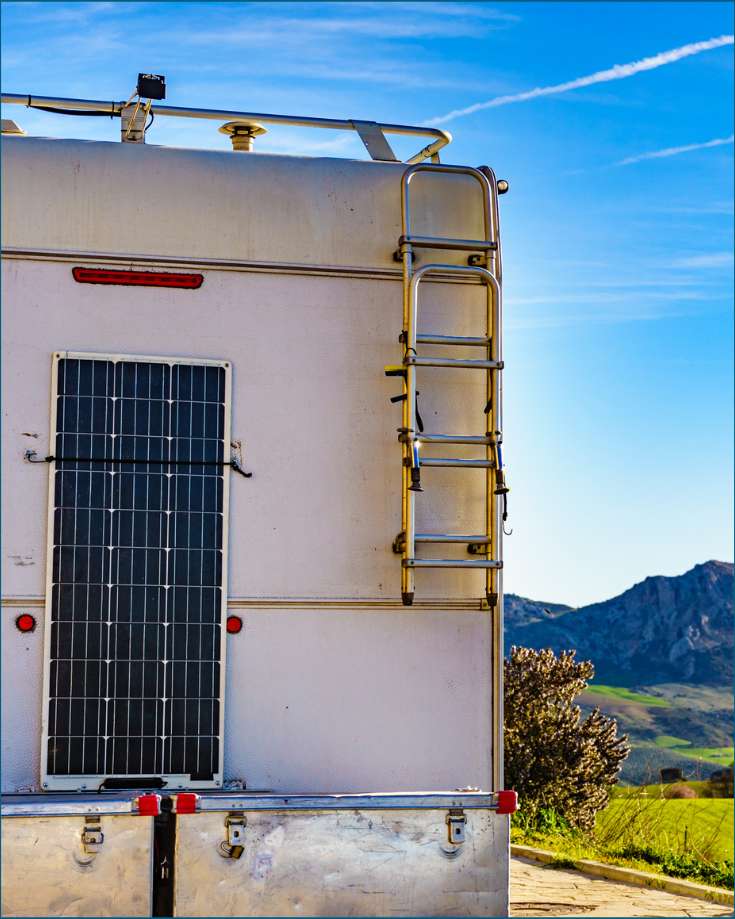
While flexible solar panels are designed to withstand harsh weather conditions and impacts, they can be more susceptible to wear and tear over time than rigid panels.
Prolonged exposure to the elements and potential abrasion from debris can eventually cause damage to the thin-film layers, reducing their efficiency and lifespan.
It’s also worth noting, that flexible panels don’t take kindly to being stepped on. Always avoid walking on them to prevent damaging the solar cells.
Higher Cost per Watt
Although the overall cost of flexible solar panels has decreased over the years, they still have a higher cost per watt than rigid solar panels.
This means that while flexible panels may be more convenient to install and handle, they might not always be the most cost effective solution when considering the energy output over time.
Not Totally Flexible
While they can conform to curved surfaces and adapt to various shapes, there is a limit to how much they can bend before being damaged.
When installing flexible solar panels on your RV, be cautious not to bend them beyond their allowable curvature.
Exceeding this limit may damage the panel’s thin-film layers or internal connections, which could compromise the performance and longevity of the system.
Always consult the manufacturer’s guidelines regarding the maximum bending radius for your specific flexible solar panel model, and follow recommended installation procedures to ensure optimal functioning and maintain warranty coverage.
Key Factors To Consider When Selecting The Best Panels For Your RV
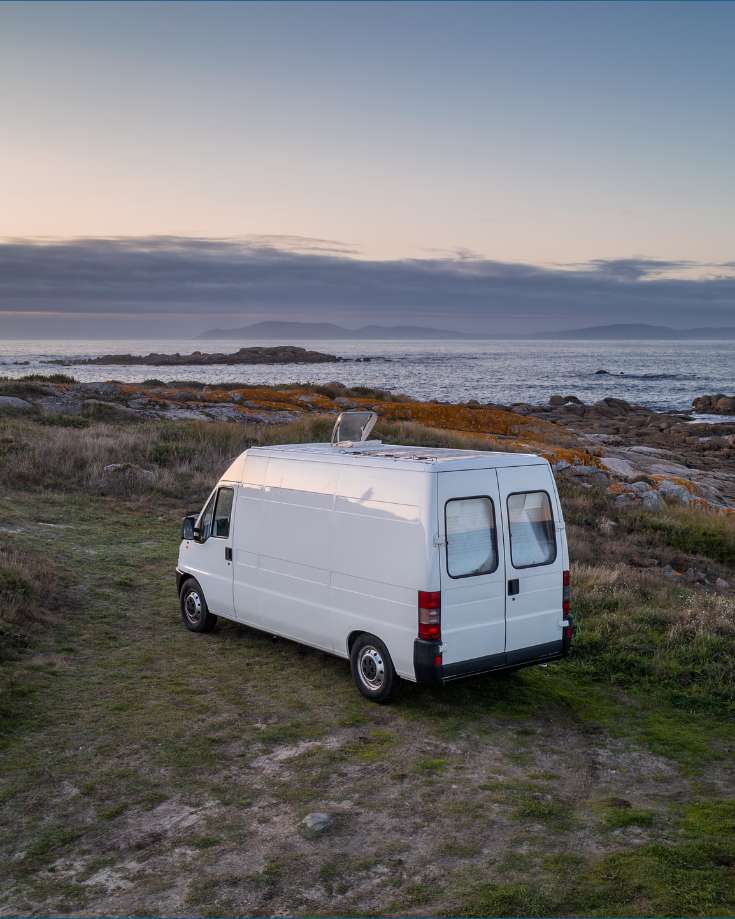
When selecting the best flexible solar panel for your RV, there are several key factors you should consider:
- size/capacity of the panel(s),
- efficiency rating,
- cost,
- warranty,
- installation requirements, and
- user experience/feedback.
You must select enough total wattage to meet your energy needs but with dimensions that will fit on your roof.
Make sure to account for roof vents, antennas, and anything that uses valuable roof space. They limit what size solar panels you can install.
Additionally, look for a model with a high-efficiency rating, as this will ensure maximum energy output from the sun’s rays.
Cost is also an important factor. Some models can be pretty expensive, so do your research before making a purchase decision.
Finally, always read user experiences/feedback online. It provides an insight into how well each model performs in real-world scenarios.
We’ve done the hard work for you here and reviewed 5 of the best flexible solar panels for RVs.
Enter coupon code MowgliAdventures for 10% off at Renogy
Renogy offers a range of flexible solar panels designed to accommodate various off-grid applications, including the 100-watt, 175-watt, and 200-watt options.
All three panels are designed with a 248° flexibility, making them suitable for curved surfaces like RVs, boats, and caravans.
Features
All three Renogy flexible solar panels share similar features, such as:
- monocrystalline cells for high efficiency,
- a 248° flexibility for easy installation on curved surfaces, and
- pre-drilled holes for straightforward mounting.
They are also designed to withstand all manner of weather conditions, ensuring durability and reliability.
Value for Money
Each Renogy flexible solar panel offers excellent value for money based on its respective power output and target users:
- The 100-watt panel is ideal for budget-conscious customers or those with limited energy needs, providing a cost-effective solution without compromising performance.
- The 175-watt panel caters to individuals seeking increased power output without significantly raising the price point, striking a balance between affordability and performance.
- The 200-watt panel, while the most expensive option, justifies its price with its highest power output and efficiency, making it a valuable investment for those requiring substantial energy for their off-grid applications.
Enter coupon code MowgliAdventures for 10% off at Renogy
The Renogy 350 Watt Solar Flexible Kit is a versatile and reliable solar power solution for RVs, boats, caravans, and other off-grid applications.
Features
- Two 175-Watt Flexible Solar Panels: These thin and lightweight panels can be easily installed on curved surfaces, making them ideal for RVs, boats, and caravans. They are made from highly efficient monocrystalline cells, ensuring maximum energy output.
- 40A MPPT Charge Controller: The kit includes a 40-amp Maximum Power Point Tracking (MPPT) charge controller that optimizes the charging process for improved efficiency. The controller also has an LCD to monitor your system’s performance.
- Easy Installation: The kit includes all the necessary components for installation, such as mounting brackets, cables, and connectors. The detailed instruction manual provides clear, step-by-step guidance, ensuring a hassle-free setup.
- Bypass Diodes: The panels feature built-in bypass diodes, which minimize power drop caused by shade and ensure excellent performance in low-light environments.
- Durability: The flexible solar panels are designed to withstand high winds and snow loads.
Performance
The Renogy 350 Watt Solar Flexible Kit delivers impressive performance thanks to its high-efficiency monocrystalline solar cells.
Users have reported consistent power output, even in partially shaded or cloudy conditions, making it a reliable energy source for off-grid applications.
The 40A MPPT charge controller ensures the system operates at optimal efficiency, maximizing the energy harvested from the sun.
Value for Money
Considering the quality of the components, ease of installation, and robust performance, the Renogy 350 Watt Solar Flexible Kit offers excellent value for money.
While the initial investment may be higher than some other solar kits, the long-term savings on energy costs and the convenience of a reliable power source make it worthwhile.
3, 4 & 5. Flexible Solar Panels On Amazon
When browsing Amazon for flexible solar panels, you’ll notice many brands, many of which might not be well-known.
As you explore these options, it’s important to focus on informative and instructional resources that provide clear, concise, and practical guidance for installation and usage in your specific off-grid application, such as an RV camper.
Prioritize safety and avoid jargon while considering the credibility of visual aids, reviews, and personal experience.
By doing so, you can make an informed decision and select the best flexible solar panel to meet your unique energy needs.
Here are three brands that have sold lots of panels and have a fair amount of feedback:
How To Mount & Install A Flexible Solar Panel On An RV
Mounting flexible solar panels on your RV is straightforward, providing a renewable energy source for your off-grid journeys.
To begin, select a suitable location on the RV roof and ensure the area is clean and debris-free.
Most flexible solar panels already include an adhesive backing, simplifying the installation process.
Carefully place the panel onto the cleaned, dry surface, pressing firmly to ensure a secure bond.
To protect the edges and enhance durability, apply high-quality sealant tape around the edges of the panel.
There are many more options for mounting flexible solar panels too.
Installing flexible solar panels is the same as installing rigid panels.
- Connect multiple panels in either series or parallel.
- Install a solar charge controller and connected it to the battery, via a fuse.
- Connect the solar panels to the solar charge controller via a fuse, and you’re all set.
It’s more involved than it sounds, but installing your RV solar panels is still an easy DIY project.
In Conclusion
Flexible solar panels offer a great way to use renewable energy sources for your RV, campervan, or motorhome.
With the right tools and guidance, you can easily install these panels on your RV roof. That means you can generate electricity even while off-grid without much fuss.
If you thoroughly research and select high-quality products from reputable brands, flexible solar panel installation is easy with lasting benefits.
You’ll reduce reliance on traditional power sources, and also enjoy significant savings over time through lower utility bills!
Do you have any experience with flexible solar panels? Share your insights, tips, or challenges in the comments below to help fellow RV enthusiasts make informed decisions.
Graham Bogie

Graham is a seasoned marine electrical engineer with two decades of experience designing customized electrical systems for plant machinery and converting campers and overland vehicles. His expertise has led him to author the reputable Campervan Electrics Handbook and become the chief designer of the RV Wiring Design Tool. As a knowledgeable figure in the field, his YouTube channel, blog, Facebook group, and newsletter, offering electrical advice and product reviews, reach more than a million users each year.

